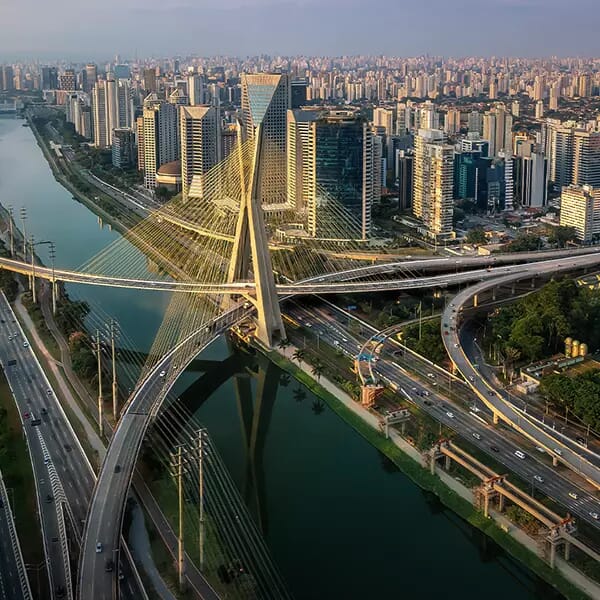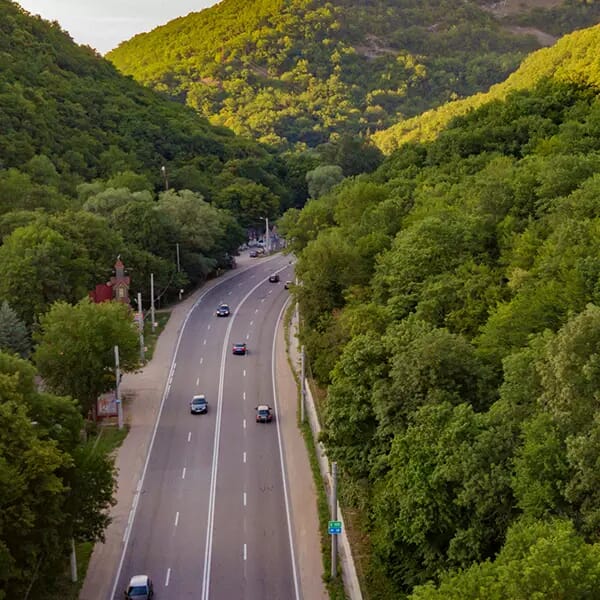 Credit: Envato Elements
Credit: Envato ElementsGreen recovery in Emerging Markets in a post-pandemic world
June 17, 2020Infrastructure
The current health crisis around the world has also drawn attention on how the capital markets can support economic recovery and contribute to a stable model to cope with the social and sustainability bottlenecks highlighted by this moment. Sean Kidney, CEO of Climate Bonds Initiative, joined GRI Infra members and brought some answers to the questions raised on how the green bonds market can play a leading role in this situation.
Kidney emphasized that before the covid bonds started to be issued in February, the green bonds were the fastest growing asset class on the planet, and there were around US$ 260 billion green bonds issued in 2019. The Institute of International Finance has also reported recent monthly volumes of more than US$ 7 billion in social bond issuances, compared with a monthly average of US$ 1.2billion in 2018/19, and with the prospect of a further surge.
But in the green finance market, Latin America has been playing a key role in this market with countries such as Chile leading on sovereign issuance, while the green bonds have been gaining momentum in Asia, especially in the ASEAN and Pacific markets, which was ranked third in green bond issuance, according to Kidney, in the first quarter of this year.
The clear message echoed by Kidney was: the main problem in this market is, in fact, the lack of supply; there is sufficient investment demand out there, but the market needs more products to invest in.
It was highlighted that most emergency relief packages announced by governments in emerging markets around the world, in response to the covid-19 crisis, do not include any specific climate change condition, while amid the recent turmoil, investors are looking for safe assets, mitigating climate risk and taking climate considerations into account when setting prudential requirements and managing their own assets.
Encouraging investors to path the way to a decarbonized economy through green bonds could be an initiative led by central government or thought national or regional green investment banks, and then help to support energy efficiency improvements, transform the electricity system and integrate renewable energy generation, build low-carbon housing, deal with deforestation problems, set resilient agricultural strategies, implement and finance low-carbon transport and mobility systems such as railways, trains and metro lines.
The GRI eMeeting was attended by some of the key leaders in Latin America and India interested in learning how to encourage green bonds issuance in their sectors, mainly in transport, energy, and social infrastructure, such as Miguel Bolinaga (AES Panama), Diego Hollweck (LAP Latin America Power), Andrés García-Novel (IFC, Mexico), Manuel Rodríguez Arregui (Ainda, Energía & Infraestructura), Amit Jain (World Bank, India), Waldo Perez (Grupo CCR), Andrés Zuluaga (Financiera de Desarrollo Nacional), Luiz Fernando Fabbriani (Iguá Saneamento), Ulrica Svensson (I Squared Capital), and others.
Kidney emphasized that before the covid bonds started to be issued in February, the green bonds were the fastest growing asset class on the planet, and there were around US$ 260 billion green bonds issued in 2019. The Institute of International Finance has also reported recent monthly volumes of more than US$ 7 billion in social bond issuances, compared with a monthly average of US$ 1.2billion in 2018/19, and with the prospect of a further surge.
But in the green finance market, Latin America has been playing a key role in this market with countries such as Chile leading on sovereign issuance, while the green bonds have been gaining momentum in Asia, especially in the ASEAN and Pacific markets, which was ranked third in green bond issuance, according to Kidney, in the first quarter of this year.
The clear message echoed by Kidney was: the main problem in this market is, in fact, the lack of supply; there is sufficient investment demand out there, but the market needs more products to invest in.
It was highlighted that most emergency relief packages announced by governments in emerging markets around the world, in response to the covid-19 crisis, do not include any specific climate change condition, while amid the recent turmoil, investors are looking for safe assets, mitigating climate risk and taking climate considerations into account when setting prudential requirements and managing their own assets.
Encouraging investors to path the way to a decarbonized economy through green bonds could be an initiative led by central government or thought national or regional green investment banks, and then help to support energy efficiency improvements, transform the electricity system and integrate renewable energy generation, build low-carbon housing, deal with deforestation problems, set resilient agricultural strategies, implement and finance low-carbon transport and mobility systems such as railways, trains and metro lines.
The GRI eMeeting was attended by some of the key leaders in Latin America and India interested in learning how to encourage green bonds issuance in their sectors, mainly in transport, energy, and social infrastructure, such as Miguel Bolinaga (AES Panama), Diego Hollweck (LAP Latin America Power), Andrés García-Novel (IFC, Mexico), Manuel Rodríguez Arregui (Ainda, Energía & Infraestructura), Amit Jain (World Bank, India), Waldo Perez (Grupo CCR), Andrés Zuluaga (Financiera de Desarrollo Nacional), Luiz Fernando Fabbriani (Iguá Saneamento), Ulrica Svensson (I Squared Capital), and others.



